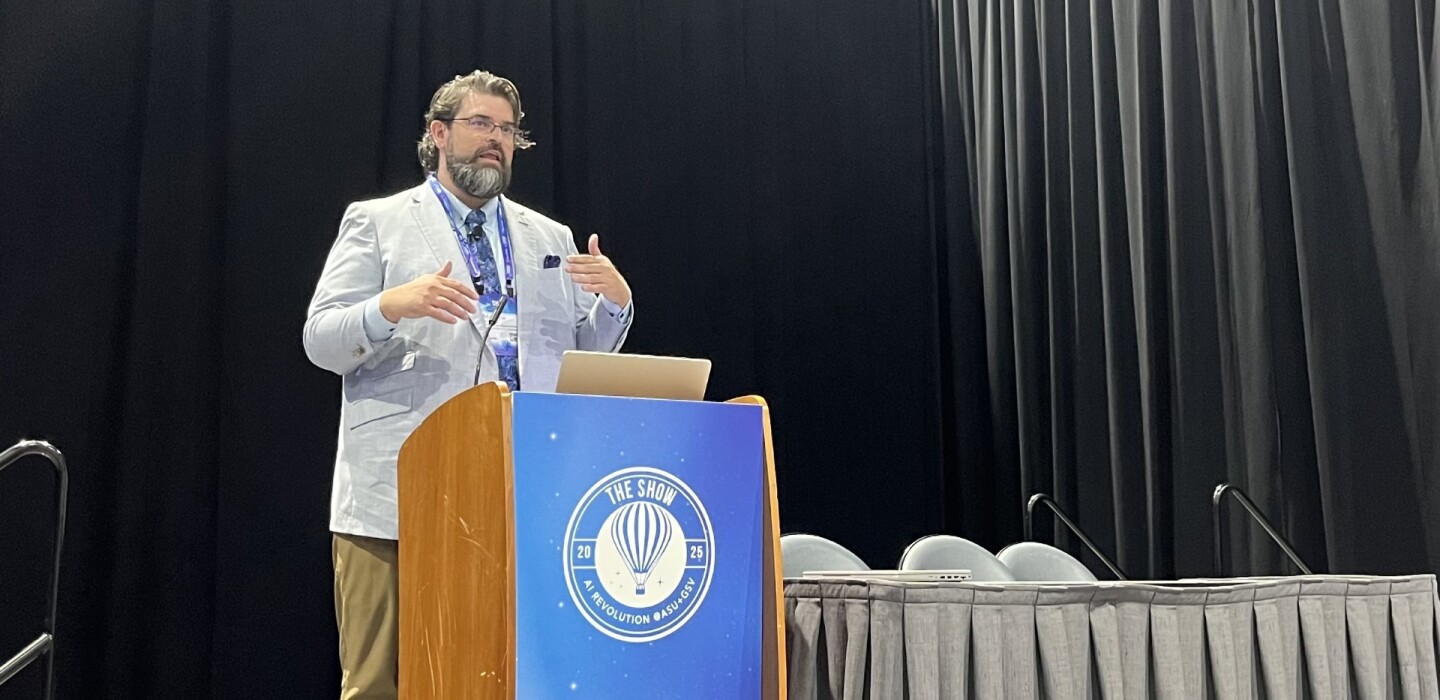Utah Unveils Initiative for Comprehensive AI Education

Utah’s Proactive Approach to Artificial Intelligence in Education
As artificial intelligence (AI) rapidly transforms various sectors, education departments across the United States are feeling the pressure to adapt. However, Utah stands out with its proactive initiatives aimed at integrating AI into K-12 education. By focusing on strategic investments, collaboration, and statewide capacity building, Utah is setting a precedent for how AI can effectively be incorporated into schools.
Establishing AI Expertise in Utah
At the forefront of these efforts is Matt Winters, who has been appointed as Utah’s first AI education specialist. This unique role was created by the Utah State Board of Education (USBE) to help schools navigate the complexities of generative AI. Winters emphasizes the urgency of this situation, noting how quickly AI technologies are evolving and becoming more integrated into society. His role involves guiding schools in adapting to these changes efficiently.
Statewide Framework and Policies
In April 2024, Utah released a comprehensive AI framework designed to assist local districts in developing their own policies and practices regarding AI use in classrooms. According to Winters, more than half of Utah’s public school districts now have an AI policy in place. This framework serves as a foundational tool for educators, helping them understand how to implement AI effectively in the classroom.
Moreover, Utah launched a statewide Request for Proposal (RFP) process in August 2024 to help schools access AI tools at a reduced cost through state-negotiated contracts. This effort allows publicly funded schools to apply for vetted AI resources more rapidly than the traditional lengthy procurement processes.
Investment in Training and Development
In addition to providing AI tools, Utah is heavily investing in teacher training and professional development. Six free AI summits were held in September 2024, gathering nearly 700 educators from various school districts, charter schools, and higher education institutions. These summits offered hands-on professional development, opportunities to interact with industry experts, and valuable feedback mechanisms for future initiatives.
Utah has also introduced a stipend program, providing teachers with a $200 financial incentive to complete AI training and submit lesson plans. This initiative aims to compile these plans into an open-source library to facilitate peer learning across different subjects and grade levels. Winters observed significant growth among teachers who participated in these AI training programs, indicating their increasing comfort and competence in utilizing AI technologies.
Infrastructure Development
The successful implementation of these AI strategies did not occur overnight. Utah has spent years laying the groundwork, focusing on building a collaborative culture and necessary infrastructure. Investments through the Utah Education Network ensure that every public school has access to high-speed internet services at no cost. Additionally, a recurring $20 million digital teaching and learning grant has supported districts in acquiring devices and educational technology tools.
Winters pointed out that without these essential components, the rollout of AI in classrooms would have been challenging. High-speed internet, available devices, and a supportive learning environment are critical for effective AI integration in education.
Legal and Policy Support
On the policy front, the Utah Legislature established an Office of AI Policy in 2024, which operates under the Department of Commerce. This office addresses legal and regulatory matters associated with AI, develops mitigation strategies for existing laws, and conducts research on significant issues such as mental health applications and the implications of deepfake technology. The collaboration with this office has been invaluable for Winters in understanding the legal landscape surrounding AI in education.
Future Plans and Expansion
With a solid framework in place, Utah is now focused on scaling its AI initiatives. Current funding covers professional development and lesson plan programs for approximately 2,600 teachers, or 10% of the total. The aim is to extend these resources to 50% of teachers through additional grant funding. An open-source lesson plan library is expected to launch soon, providing educators with practical examples of how to integrate AI into their teaching.
In addition, Utah is creating AI literacy modules for younger students in grades K-6 and collaborating with higher education institutions to develop aligned courses at the secondary level. By 2027, the state aims to offer complete course pathways in AI disciplines like engineering.
The University of Utah is also planning a collaborative event, “Hack the Future,” aimed at bringing together leaders in education, policy, and technology to draft long-term strategies for AI implementation in the state.
Key Takeaways for Other States
For other states considering similar AI initiatives, Winters emphasizes the importance of fostering a culture of innovation and collaboration. Establishing strong relationships among education stakeholders, as well as possessing deep expertise in the field, are critical factors that will contribute to the successful integration of AI in education.





